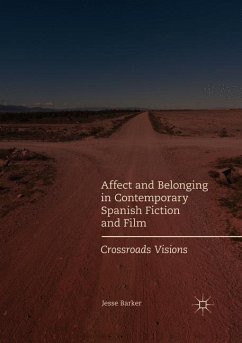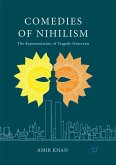This book brings together recent Spanish fictions and films that point to individualism as the root problem driving diverse circumstances of social, economic, and psychological suffering in the present and recent past. The works privilege sensation, movement, and emotion-rather than identity-as the core elements of existential experience. However, the works also problematize notions of intersubjectivity, confronting ideals of affective immersion and cultural nomadism with the concrete contexts that shape particular lives and social formations. This confrontation underlies a series of 'crossroads', or productive engagements, that guide the book's five main chapters: locally rooted identity and global cultural circuits; historical contexts and universal modes of being; personal authenticity and consumer culture; migration and cultural identity; Spain's historical underdevelopment and impending future crises. All of these issues make affective connection and attachment the greatest existential challenge facing individuals and collectives in the contemporary world, both in Spain and elsewhere.








